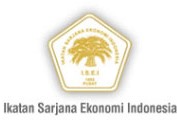Street Vendors (PKL) as the Survival Strategy of Poor Community
(1) Universitas Negeri Semarang
(2) Universitas Negeri Semarang
Abstract
Street vendors are some of informal sector business actors who are directly related to city government policy. Illegal street vendors as one type of street vendors often get ill-treatment from the city government. It is because in running the business, street vendors occupy public space, such as sidewalks and shoulders, so they are disciplined. Through this phenomena, this study aimed to analyze (1) survival strategy done by street vendors and (2) reasons by street vendors in using public space as a place to trade. Those objectives were further described by employing qualitative descriptive method with data collection technique through interviews and observations. Once the data have been collected, they were analyzed qualitatively interactively. From the research results, it can be concluded. First, being a street vendor for low-level society is the only option and is the most viable way to sustain their lives. Some street vendors do survival strategy in order to meet the needs of everyday life. Second, street vendors use public spaces such as roadsides and sidewalks because (1) there are limitations which make them impossible to occupy locations with obligations to pay, (2) roads and sidewalks are strategic places to peddle merchandise; and (3) lack of attention from government to the needs and welfare of street vendors.
Keywords
Full Text:
PDFReferences
Akbar, Andy. 2016. "Strategy Surviving Scavengers in Village Sidomulyo District Samarinda Ilir". In ejournal of Social Development Volume 4 Number 3, 2016. Page 141-154.
Amin, ATM Nurul. 2005. "The Infornal Sectors Role in Urban Environmental Management". In International Review for Environmental Strategies Vol.5 No. 2. Page 511-530.
Anoraga, Banner. 2001. Work Psychology. Jakarta: Rineka Cipta.
Ari, Bambang. 2008. "Handling of Street Traders in Bandung City with Public Policy Perspective". In Professional Education Journal Volume IV Number 19, November 2008.
Bhowmik, S. K. 2003. "National Policy for Street Vendors." In Economic and Political Weekly, 1543-1546.
Brannen, Yulia. 1997. Integrated Qualitative and Quantitative Research Methods. Yogyakarta: Student Literature.
Bungin, Burhan. 2015. Qualitative Research Second Edition. Jakarta: Prenana Media Group.
Chasanah, Nur Umi. 2013. "Strategy to Survive Food Business in Hamlet Ngentak Sapen RW 01 Caturtunggal Depok Sleman DIY". Final Project on Sociology Department, Faculty of Social Sciences and Humanity of Yogyakarta State Islamic University.
Creswell, John W. 2007. Qualitative Inquiry and Research Design Choosing Among Five Approach Second Edition. London: SAGE Publications.
Creswell, John W. 2010. Research Design Qualitative, Quantitative Approaches dan Mixed. Translated by Achmad Fawaid. Yogyakarta: Pustaka Pelajar.
Destombes, Tjerk. 2010. “Informal Entrepreneurs: Street Vendors, Their Livelihoods and The Influence of Social Capital. Master Thesis on International Development Studies USC UU.
Donovan, M. G. 2002. Space wars in Bogotá: The Recovery of Public Space and Its Impact on Street Vendors (Doctoral Dissertation, Massachusetts Institute of Technology).
Handoko, Tanuwijaya. 2011. Business of Street Traders. Yogyakarta: Pustaka Pelajar.
Ibrahim, Bedriati dan Murni Baheram. 2009. "The Scavenger Family's Defensive Strategy in Salo Village Kampar Regencyâ€. In Jurnal Ichsan Gorontalo, Volume 4, No. 2, May-June 2009 edition, page. 2439-2448.
Jannah, Wirdatul. 2015. “Strategy to Survive of Palm Farmer In Pasir Sialang Village Bangkinang District Kampar Regencyâ€. In Jom FISIP Volume 2 Number 1, February 2015. Page 1-15.
Jhabvala, Renana. 2012. “Forewardâ€. In Bhowmik, S. Street Vendors in the Global Urban Economy. Taylor & Francis.
Karlita, Nanda. 2011. “Strategy to Survive Women in Coastal Areas (Muara Dusun Muara Village Tangerang Banten Regency)â€. Final Project on the Department of Communication Science and Community Development, Faculty of Human Ecology, Institut Pertanian Bogor.
Khaerunnisa, 2015. "Strategy Improving Socio-Economic Life of Roasted Fish Traders Suradadi Village Suradadi Sub-district of Tegal Regency". Final Project on Sociology and Anthropology Education, Social Sciences Faculty, Semarang State University.
Maharika, Ilya F. 2009. Diagrams of Informality Dynamics ". In Yoshi Fajar Kresno Murti (ed). Informalities of the Township Writing Villages edition of 3rd of October 2009. Yogyakarta: Yayasan Pondok Rakyat.
Manihuruk, Mona Lusia BR. 2013. "The Strategy to Survive Informal Sector Actors: The Role of Social Capital of Migrant Traders of Legs Around Bogor Botanical Garden. Final Project on the Department of Communication Science and Community Development, Faculty of Human Ecology, Institut Pertanian Bogor
Manning, Chris and Kurnya Roesad. 2006. "Survey of Research Developments". In Bulletin of Indonesian Economic Studies 42 (2). Page 143-170.
Maxwell, Joseph A. 1996. Qualitative Research Design An Interactive Approach. London: SAGE Publications.
Miles, Mattheuw B. and A. Michael Huberman. 1992. Qualitative Data Analysis. Translated by Tjetjep Rohendi Rohidi. Jakarta: UI Press.
Neuman, W. Lawrence. 2013. Social Research Methodology: Qualitative and Quantitative Approach Issue 7. Translated by Edina T. Sofia. Jakarta: PT. Index.
Olabisi Sherifat, Yusuff. 2011. "A Theoretical Analysis of the Concept of Informal Economy and Informality in Developing Countries". In European Journal of Social Sciences, Vol. No. 20 4 (2011). Page 624-636.
Patton, Michael Quinn. 2006. Qualitative Evaluation Method. Translated by Budi Puspo Priyadi. Yogyakarta: Student Literature.
Prasetyo Suyono, Robi Dwi. 2015. "Strategy Surviving Traditional Herbal Traders In RT 25 RW V Kutakulon District Bondowoso Bondowoso". Final Project on Economic Education Program, Social Sciences Department, Faculty of Teacher Training and Education, Jember University.
Purnomo, R. A. (2017). Economic Impact Analysis of Relocation Five Feet Vendors in Purwokerto. JEJAK: Journal of Economics and Policy, 10 (2), 242-256.
Ritami, Eci. 2016. "The Role of Social Capital in Strengthening the Strategy to Survive the Stone Miners (Kelurahan Sepancang Lawang Kulon, East Baturaja District, South Sumatera)". Final Project on Sociology Department, Social Science Faculty and, University of Lampung.
Roberts, Brian and Trevor Kanaley. 2006. “Overviewâ€. In Urbanization and Sustanibilty in Asia Case Study of Good Practice. Philippines: Asian Development Bank.
Sari, Nindy Purnama. 2016. “Transformasi Pekerja Informal ke Arah Formal: Analisis Deskriptif dan Regresi Logistikâ€. In Jurnal Ekonomi Kuantitatif Terapan Vol. 9 No. 1, February 2016. Page. 28-36.
Setia, Resmi. 2005. Dig Hole Close That's Ordinary: Labor Strategy to Overcome Problems from time to time Bandung: Yayasan Akatiga.
Sj-Sumarto, Hetifah. 2009. “Policy of PKL Friendly in Urban: Learn from Solo Cityâ€. In Jurnal Analisis Sosial Vol. 14 No. 1, May 2009. Page 54-64.
Sugiyono. 2008. Understanding Qualitative Research. Bandung : Alfabeta.
Suharto, Edi. 2003. “Coping Strategi dan Keberfungsianâ€. On Pikiran Rakyat.com. accessed on 17th of April 2013.
Widodo, Slamet. 2011. “Sustainable Livelihood Strategy for Poor Households in Coastal Areasâ€. In Jurnal Makara Sosial Humaniora Vol. XV, No. 1, Page 10-20.
Yin, Robert K. 1997. Design and Method Case Studies. Translated by M. Djauzi Mudzakir. Jakarta: PT. Raja Grafindo Persada.
Refbacks
- There are currently no refbacks.

This work is licensed under a Creative Commons Attribution 4.0 International License.






